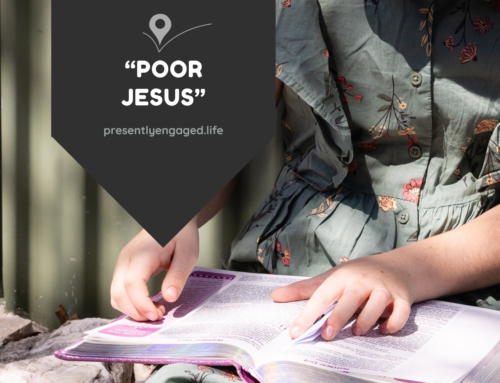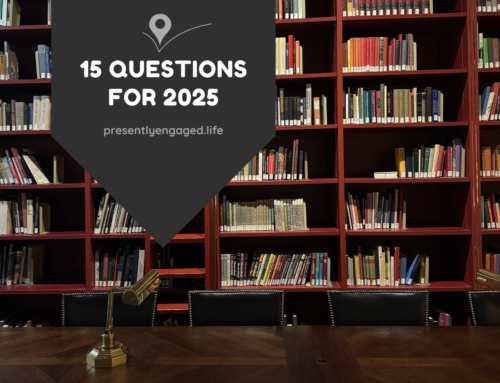The street light’s yellow glow wafted through the window panes in the dark night. Surrounded by books, notes, scribbles and outlines, I was eight hours from the end of my last college semester. I wish I could tell you that I had responsibly mapped out my projects, planned out my papers, and scheduled out my time. But no—it was officially the last minute, which found me feverishly pounding away on my keyboard to compile the multiple projects due the next day. Any chance you can relate?
Those famous words, “I’ll do it tomorrow,” have caused more unneeded work than any other words I’ve uttered. It’s taken me a long while, but my focus now is to handle things once where possible, schedule the rest, and responsibly follow through. I’ve also discovered the strength of being a last-minute sprinter, and can schedule productive time for finishing touches right before the finish line.
Procrastination punts the physical energy to the next day, but the mental energy to handle the project in your brain numerous times throughout the day is exponential. Procrastination is wasted energy. Sure, I might whisper to myself, “I’ll do that tomorrow,” but I’m emotionally handling the project several times before I actually get to the physical work of getting it done. What am I doing when I’m procrastinating, when I’m repeating to myself over and over, “I’ll do it tomorrow”?
I’m using far more energy on the task than I would if I just did it right away, at the right time. When it comes to a project on your task list, either intentionally tackle it today, or intentionally schedule it for tomorrow, and do not waste the energy of handling it more than once.
Worry is like that too.
When I allow worry to invade my thoughts, when I spin my wheels on the “What If’s” and the “What Now’s,” this gives me perspective: Worry is wasted energy. And who has the time to waste energy?
There is nothing wrong with the initial worry that rises up in our hearts before or during a hard conversation, or late at night when the rest of the house is asleep, or after catching up on the news. It’s what we do with that worry that indicates where our faith lies. Think of worry as a launching pad for two things that put our faith into action:
Pray
If you ever walk through a field full of burrs and stickers, you know that they stick to your clothes and shoes despite your best efforts. The only thing to do is to stop, pick the burrs off your clothes one by one, and throw them away.
When we walk through the day, worries stick to our hearts, just like burrs stick to our socks. Continuing to walk with a worry is more painful than a thorn constantly pressing into that sensitive place right below your ankle bone—you know the spot. It will rub and poke until it is taken care of, and it’s not coming out by itself. The only thing to do is stop, identify the worry, and throw it away.
Prayer is the solution for this. When we share our worries with the One who knows us best and loves us most, we release these things to His care and keeping.
Paul put it into divinely-inspired words: “Do not be anxious about anything, but in everything by prayer and supplication with thanksgiving let your requests be made known to God. And the peace of God, which surpasses all understanding, will guard your hearts and your minds in Christ Jesus” (Philippians 4:6-7).
In everything, by prayer and supplication—with thankful hearts—we tell God our requests. We let worry drive us to Jesus. That little prick of a thorn takes us to the One who can pull them out. I love the way Eugene Peterson worded it: “Let petitions and praises shape your worries into prayers, letting God know your concerns. Before you know it, a sense of God’s wholeness, everything coming together for good, will come and settle you down.”
Worried? Shape your worry into a prayer.
Take Action
Some worries inspire action. They are legitimate thoughts that the wise person will transform into a specific effect.
Here is a blinding flash of the obvious that frees me: If it is not my calling to take action on it, it is not my calling to worry about it. And if it is my calling to prayerfully take action on it, then I don’t have to worry about it.
That’s one of the beautiful reasons that being presently engaged is so valuable. It’s living with the prayer, “Jesus, what’s next?” on our lips and our hearts. So procrastination is less likely because we’re focused on doing the next right thing, rather than wasting energy worrying about an unknown future. Rather than pushing something that should be our focus right now into a future day that is already full, we’re actively engaged in the present God has given us.
As you go through your day, friend, reject the tendency to let worry stay as worry. Transform that worry into a prayer, and into a plan. Sufficient unto the day is its own 24 hours.
“Those claims only of the morrow which have to be prepared today are of the duty of today: the moment which coincides with work to be done, is the moment to be minded; the next is nowhere till God has made it.
…
“To the foundation of yesterday’s work well done, the work of the morrow will be sure to fit. Work done is of more consequence for the future than the foresight of an archangel. —George MacDonald






